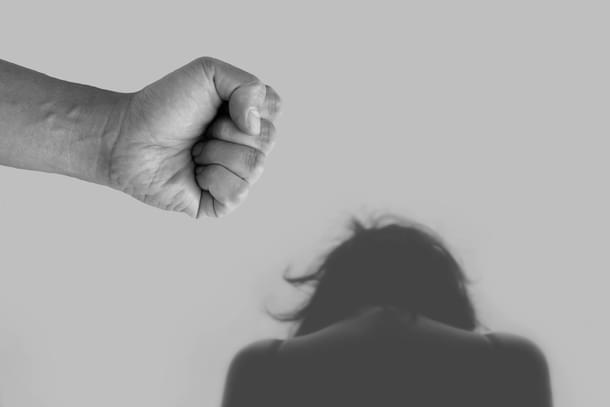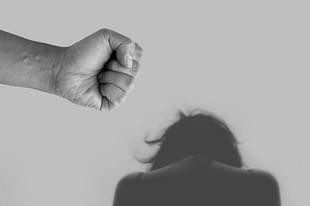Commentary
Child Abused In Fake NCC Camp In Tamil Nadu: Leave Whataboutery Behind And Take Action
Aravindan Neelakandan
Aug 22, 2024, 07:46 PM | Updated 07:46 PM IST
Save & read from anywhere!
Bookmark stories for easy access on any device or the Swarajya app.


The horror of Kolkata rape-murder and the trauma of sexual abuse of kindergarten children in Maharashtra are followed immediately by the shock of a report of fake National Cadets Crops (NCC) camp being conducted in a school in Tamil Nadu where the girls were subjected to sexual assault and abuse.
Despite influential efforts to hush the scandal, the students have brought the issue to the fore.
According to a report in The Indian Express, the criminal conduct was from ‘Sivaraman, the district youth wing secretary of Naam Tamilar Katchi (NTK) – a regional political group’. It was Sivaraman, who had organised the camp, was the one who allegedly sexually assaulted the girl.
The political party has distanced itself from the accused, pointing out that he had already been expelled from the party.
The problem is not the party affiliations or the management of the school which happens to be Christian-run. Though the entire media would have had a field day had the school been run by a Hindu management.
The point is that this abuse could have happened in any school and under any management. In this case however, the management, fully aware that the school had no NCC unit, deliberately misled the children by calling it an NCC camp.
It is reported that actually Sivaraman duped the principal by saying the camp would obtain sanction for an NCC unit in the school and the Principal fell for the bait without verifying the credentials. Yet the principal did no background check on the person.
When the 13-year old victim reported the alleged assault by Sivaraman to the principal, the principal, along with the school correspondent and two teachers, chose to cover up the crime. It was when the girl told her parents that it led to a police complaint.
The question is why not just the principal but the management also hushed the incident instead of confronting the accused.
Had the school acknowledged its own acts of omission in not conducting a background check, and had it gone to the police and reported the crime, it would have come out stronger and cleaner. It would have done the duty of protecting the children.
When a school welcomes a child, it engages in far more than a mere financial transaction. Beyond the fees lies a profound moral contract and an ethical bond, embodying the principle of 'in loco parentis'.
Every teacher, and especially the principal, implicitly pledges to act as the parent of each child within the campus, nurturing and safeguarding them throughout their time there. To fail in this sacred duty is to shatter the ethical bond and contract that underpins the very essence of education.
Yet, in the relentless pursuit of financial gain and institutional prestige, this fundamental principle is all too often forgotten.
The children, teachers, and principal are integral parts of the school community. However, demanding that they sacrifice their welfare, rights, and conscience for the so-called ‘good’ of the institution is a grave misdirection. It reverses the true priority.
The true purpose of a school is to serve the children, fostering their holistic development and safeguarding their well-being. Every aspect of a school should prioritize the child’s welfare and her protection above all else. Everything else including the reputation of the school, is secondary.
When the individual student is subordinated to the institution, even in the face of injustice, it becomes the seed for other major societal illnesses: the subjugation of citizens to governmental corruption, the sexual and financial exploitation of party members by political power structures, and the betrayal of religious devotees by unscrupulous leaders.
This systemic subordination undermines the very essence of ethical integrity and traumatises individual dignity.
A Legally Enforced ‘Child-Abuse-Free Zone’
The Central Government must urgently develop a comprehensive pan-India strategy to eliminate all forms of child abuse in schools. Beyond the legal measures to punish the perpetrator after the crime has happened, which is very much needed as a deterrent, there should be legal enforcement of a ‘child-abuse-free’ campus infrastructure, both tangible and intangible, which should be mandatory in every school.
Tangible measures should have implementation of physical security systems which includes surveillance technologies, securing entry and exit points, and making class rooms transparent as much as possible.
Intangible dimensions should include development of policies and protocols for reporting and addressing abuse, regular training for staff on child protection, and apart from regular parent-teacher meeting, a special discreet session of the parents and management for the purpose of ensuring vigilance.
Legal experts, educationists, surveillance technologists, child psychologists, and specialists in deviant behaviour must collaborate to design and implement a comprehensive child-abuse-free system.
By legally enforcing child-abuse-free infrastructure and fostering interdisciplinary collaboration, we can create a secure and nurturing environment for all students.
This issue transcends ideological differences and demands a unified, ethical response. Highlighting abuse based on the ideological or religious affiliation of the school’s management only serves to perpetuate division and injustice. When abuse occurs in a school aligned with one’s own beliefs, there is a dangerous tendency to downplay it. Conversely, those with media control may manipulate the narrative to serve their interests, leading to selective outrage and de-sensitisation.
Sexual abuse of children in schools is a profound shame for our society. We must confront it collectively, prioritising the ethical gravity of the issue and ensuring justice for every victim. The media plays a crucial role in this fight by maintaining objectivity and reporting abuses without bias, regardless of who commits the crime.
As parents and guardians, our passion for protecting our children must drive us to demand and support these changes. Together, we can create a safer environment for all kids.





